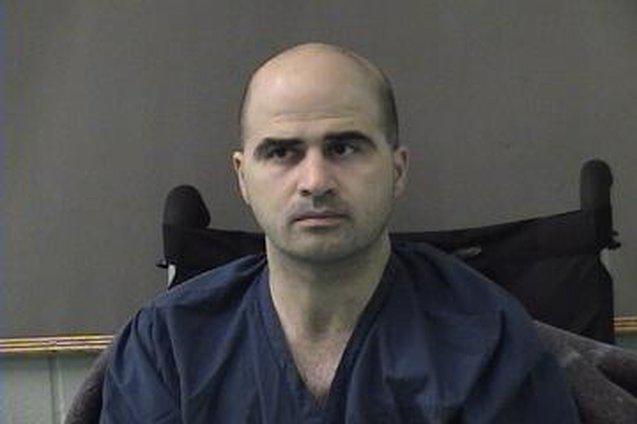The second day of Fort Hood shooter Nidal Hasan’s trial came to a quick end Wednesday when the judge presiding over the court martial suspended proceedings while she considers a request from Hasan’s court-assigned legal team to part ways with their client because they believe he is actively seeking the death penalty for himself.
Hasan, you will remember, has insisted on acting as his own lawyer, but the court has assigned “standy-by counsel” to help out with procedural matters during the trial. But after hearing Hasan’s opening statement yesterday, the military defense lawyers say it’s unfair to force them to stay on. USA Today with the details from Texas:
In a motion filed late Tuesday, [Lt. Col Kris] Poppe and his team said they feel Hasan is trying to purposely get the death penalty and asked the judge, Col. Tara Osborn, to not force them to be part of that effort. Poppe, addressing Osborn on Wednesday, said it became clear that Hasan is seeking the death penalty for himself after hearing the accused opening statement and cross examination of witnesses.
“Assisting him in achieving the goal of moving closer to the death penalty is something a defense trial attorney should not be forced to do,” Poppe said.
Hasan, for his part, disputed that statement, saying it was a “twist of the facts.” Judge Col. Tara Osborn adjourned court for the day to consider whether to allow the motion. Making matters more complicated is the fact that as unusual as Hasan’s opening statement was, it didn’t necessarily break new ground. He had already previously admitted, both in court and out of it, to being the gunman—he claims to have been trying to protect Taliban leaders from U.S. soldiers deploying to Afghanistan—and had even offered to plead guilty to the charges. The prosecution refused the offer, however, because under military law a defendant can’t be executed unless he has a trial.
